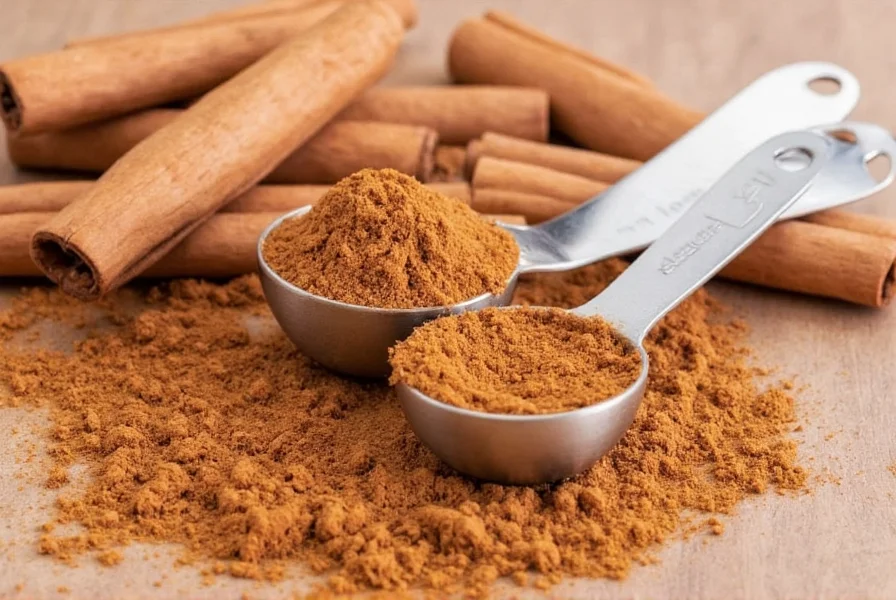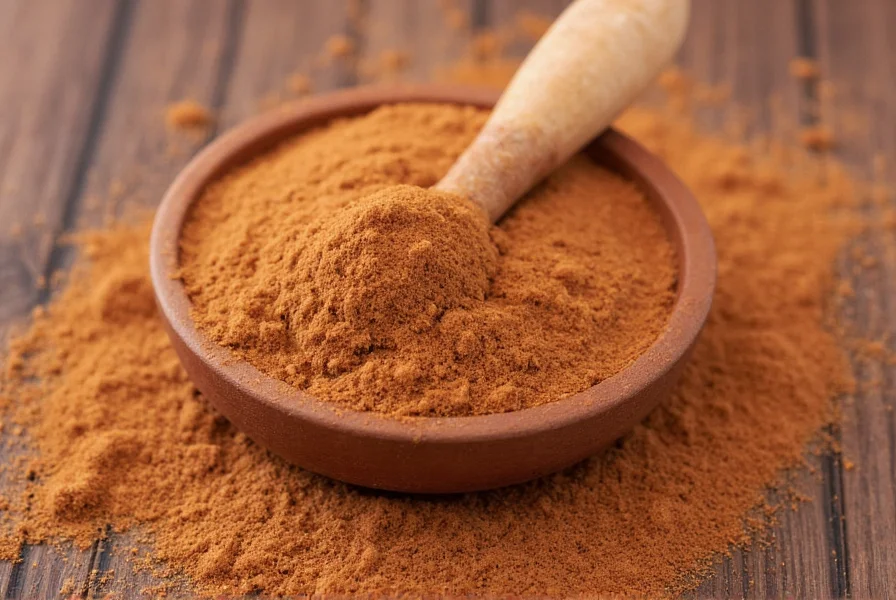Cinnamon has been treasured for thousands of years, not just as a culinary spice but as a medicinal remedy across ancient civilizations from Egypt to China. Modern science has begun validating many traditional uses while uncovering new potential health applications. This comprehensive guide examines what cinnamon is genuinely good for based on current scientific evidence, separating fact from popular myths.
Science-Backed Health Benefits of Cinnamon
Blood Sugar Regulation and Diabetes Management
Among the most well-documented cinnamon benefits is its effect on blood glucose control. Multiple clinical studies show that consuming 1-6 grams of cinnamon daily can significantly reduce fasting blood sugar levels in people with type 2 diabetes. Research published in the Journal of the Academy of Nutrition and Dietetics demonstrated that cinnamon improves insulin sensitivity by mimicking insulin and enhancing glucose uptake by cells. For those searching for what are the health benefits of cinnamon for diabetes, the evidence suggests it can be a valuable dietary addition but should never replace prescribed diabetes medications.
Potent Antioxidant Properties
Cinnamon ranks among the most antioxidant-rich spices according to ORAC (Oxygen Radical Absorbance Capacity) measurements. Its high concentration of polyphenols helps combat oxidative stress, which contributes to aging and numerous chronic diseases. A study in Oxidative Medicine and Cellular Longevity found that cinnamon's antioxidant activity exceeds that of many fruits and vegetables by weight. When considering cinnamon antioxidant properties for overall health, regular consumption may help protect against cellular damage from free radicals.
| Cinnamon Type | Coumarin Content (per tsp) | Recommended Daily Limit | Best For |
|---|---|---|---|
| Ceylon ("True" Cinnamon) | 0.04-0.14 mg | Unlimited for most people | Daily therapeutic use, children, long-term consumption |
| Cassia (Common Grocery Store) | 3.7-10.5 mg | 1-2 tsp maximum | Occasional culinary use, short-term therapeutic use |
Anti-Inflammatory Effects
Chronic inflammation underlies many serious health conditions including heart disease, cancer, and neurodegenerative disorders. Cinnamon contains cinnamaldehyde and other compounds that demonstrate significant anti-inflammatory activity in laboratory studies. Research in BMC Immunology showed cinnamon extract inhibits inflammatory signaling pathways. For those exploring cinnamon anti-inflammatory effects for chronic pain, it may provide complementary support though it shouldn't replace conventional anti-inflammatory treatments.
Heart Health Support
Several studies indicate cinnamon may improve multiple risk factors for heart disease. A meta-analysis in Nutrition Research Reviews found that cinnamon consumption significantly reduced LDL cholesterol, triglycerides, and total cholesterol while maintaining beneficial HDL levels. The spice also appears to help lower blood pressure in animal studies. When investigating cinnamon heart health benefits for cardiovascular protection, the evidence suggests it may be a valuable dietary component for heart health maintenance.
Practical Applications Beyond Health Benefits
Culinary Uses That Maximize Benefits
To get the most health benefits from cinnamon while enjoying its flavor:
- Add 1/2 teaspoon to morning coffee or tea instead of sugar
- Sprinkle on oatmeal, yogurt, or fruit salads
- Use in place of sugar in baking recipes (reduces overall sugar content)
- Create a cinnamon-vanilla extract for sugar-free flavoring
- Add to savory dishes like curries and stews for depth of flavor

Different Cinnamon Varieties and Their Benefits
Not all cinnamon provides the same health benefits or safety profile. Understanding the difference between varieties is crucial when determining how much cinnamon should I take daily for therapeutic effects:
Ceylon Cinnamon (Cinnamomum verum)
Often called "true cinnamon," this variety comes primarily from Sri Lanka. It has a more delicate flavor and contains significantly less coumarin (a compound that can cause liver damage in high doses) than Cassia. For regular therapeutic use, Ceylon is the preferred choice.
Cassia Cinnamon (Cinnamomum cassia)
The most common and affordable variety found in grocery stores. While it offers similar health benefits, its higher coumarin content means consumption should be limited to 1-2 teaspoons daily. This variety works well for occasional culinary use but isn't ideal for daily therapeutic doses.
Safety Considerations and Recommended Dosage
While cinnamon is generally safe when consumed in food amounts, therapeutic doses require consideration of potential side effects:
- Coumarin content: Cassia cinnamon contains high levels that may cause liver damage with prolonged high-dose use
- Medication interactions: May interact with blood thinners, diabetes medications, and liver-metabolized drugs
- Oral health: Can cause mouth sores in sensitive individuals when consumed in large amounts
- Pregnancy: Safe in food amounts but therapeutic doses not recommended during pregnancy
The optimal daily dose for health benefits appears to be 1-2 grams (about 1/2 to 1 teaspoon) of Ceylon cinnamon. For Cassia, limit to 1 teaspoon daily due to coumarin content. When researching cinnamon side effects and safety guidelines, always consult with a healthcare provider before using cinnamon therapeutically, especially if you have existing health conditions or take medications.
How to Incorporate Cinnamon Into Your Daily Routine
Maximizing cinnamon's benefits requires consistent, appropriate usage. Here are evidence-based suggestions for those exploring how to use cinnamon for health benefits:
- Morning metabolism boost: Add 1/2 teaspoon to your morning coffee or tea (no sugar needed)
- Blood sugar management: Consume with carbohydrate-containing meals to help moderate glucose response
- Anti-inflammatory blend: Mix with turmeric and black pepper for enhanced anti-inflammatory effects
- Natural sweetener alternative: Replace sugar in recipes with cinnamon-vanilla combinations
- Evening relaxation: Add to warm almond milk before bed for potential metabolic benefits during sleep
Conclusion: What Cinnamon Is Really Good For
Cinnamon offers several scientifically supported health benefits, particularly for blood sugar regulation, antioxidant protection, inflammation reduction, and heart health support. The key to maximizing these benefits while minimizing risks lies in selecting the right variety (Ceylon for regular use), consuming appropriate amounts (1-2 grams daily), and understanding that cinnamon complements rather than replaces conventional medical treatments. When evaluating scientific evidence for cinnamon health claims, look for human clinical trials rather than just laboratory or animal studies, as these provide the most reliable evidence for human health applications.
Frequently Asked Questions
Can cinnamon lower blood sugar immediately after eating?
Cinnamon doesn't lower blood sugar immediately like medication would. Research shows it improves insulin sensitivity over time, typically requiring consistent daily consumption for 4-8 weeks to see significant effects on fasting blood glucose levels. Consuming cinnamon with meals may help moderate the blood sugar spike from that specific meal, but the most substantial benefits come from regular, long-term use rather than immediate effects.
How much cinnamon should I take daily for health benefits?
For Ceylon cinnamon ("true" cinnamon), 1-2 grams (approximately 1/2 to 1 teaspoon) daily provides health benefits with minimal risk. For Cassia cinnamon (common grocery store variety), limit to 1 teaspoon daily due to higher coumarin content. Therapeutic effects for blood sugar management typically require at least 1 gram daily for several weeks. Always consult with your healthcare provider before starting cinnamon supplementation, especially if you have liver conditions or take medications.
Is cinnamon effective for weight loss?
While some preliminary research suggests cinnamon might support metabolic health which could indirectly aid weight management, there's no strong evidence that cinnamon directly causes significant weight loss. Any weight loss benefits would likely come from cinnamon's potential to improve insulin sensitivity and reduce blood sugar spikes, which might help control appetite and reduce cravings. Cinnamon should not be considered a weight loss solution but may be a helpful component of a comprehensive weight management approach.
Can I use cinnamon if I'm on blood thinners?
If you take blood-thinning medications like warfarin, consult your doctor before consuming therapeutic amounts of cinnamon. Cinnamon contains coumarin, which has blood-thinning properties, and could potentially enhance the effects of these medications, increasing bleeding risk. Culinary amounts (1/4 to 1/2 teaspoon occasionally) are generally safe, but daily therapeutic doses require medical supervision when combined with blood thinners.
What's the difference between Ceylon and Cassia cinnamon for health benefits?
Both varieties offer similar health benefits, but Ceylon cinnamon contains significantly less coumarin (a compound that can cause liver damage in high doses) than Cassia. Ceylon is preferable for regular, long-term therapeutic use, while Cassia is suitable for occasional culinary use. For daily consumption beyond small amounts, Ceylon is the safer choice. When researching cinnamon vs cassia health benefits, note that most clinical studies don't specify which variety was used, making direct comparisons challenging.











 浙公网安备
33010002000092号
浙公网安备
33010002000092号 浙B2-20120091-4
浙B2-20120091-4